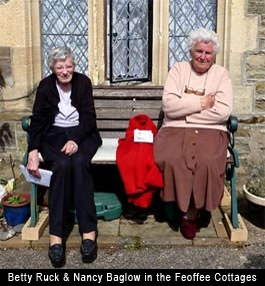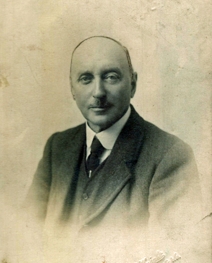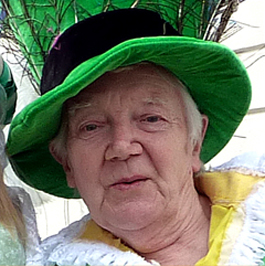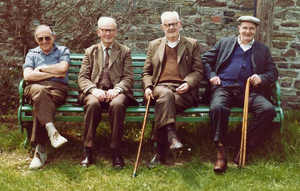Themes - PeopleThe Pilton Story is first and foremost about people
One of the objectives is to record the stories of as many Pilton people as possible.
We know something of the major players of history. You can read about them on this website, like in the article on 'Pilton Church Hall formerly The Unicorn Inn', but we are looking for much, much more about ordinary people in history.
And little is being recorded about the day-to-day lives of Pilton people today. So that future generations are better informed about our village, we are collecting the stories of recent times before they are lost forever.
Go to the Submit Form to get in touch with us with your stories about Pilton people past and present.

The Pearce Family
 The Pearce Family, who lived in Pilton House until it was sold in 1948, was very significant to Pilton life for well over half a century. The Pilton Story has recorded Charles Pearce Senior (b 1858, d. 1945) who was a Justice of the Peace, Mayor of Barnstaple and Churchwarden of St Mary's Church and is shown in the photograph. His first wife, Elizabeth Annie Pearce (b. 1861, d. 1917) was the mother of their five children - Charles Pearce Junior (b. 1886, fought in World War I, d. 1960), John Pearce (b. 1887, d. 1963), Arthur Pearce, and two daughters. Charles Senior married again, to Annie Barrow Pearce (b. 1859, d. 1936). The Pearce Family owned The Tannery in South Molton, bought by Charles and his brother Thomas Pearce in 1881, until they sold it in 1953. Iris Pearce, wife of Charles Pearce Junior, and Cherry Pearce, their daughter, both live in Pilton.
The Pearce Family, who lived in Pilton House until it was sold in 1948, was very significant to Pilton life for well over half a century. The Pilton Story has recorded Charles Pearce Senior (b 1858, d. 1945) who was a Justice of the Peace, Mayor of Barnstaple and Churchwarden of St Mary's Church and is shown in the photograph. His first wife, Elizabeth Annie Pearce (b. 1861, d. 1917) was the mother of their five children - Charles Pearce Junior (b. 1886, fought in World War I, d. 1960), John Pearce (b. 1887, d. 1963), Arthur Pearce, and two daughters. Charles Senior married again, to Annie Barrow Pearce (b. 1859, d. 1936). The Pearce Family owned The Tannery in South Molton, bought by Charles and his brother Thomas Pearce in 1881, until they sold it in 1953. Iris Pearce, wife of Charles Pearce Junior, and Cherry Pearce, their daughter, both live in Pilton.
Events related to the Pearce Family and Pilton House, which are recorded in The Pilton Story, include that the grounds of Pilton House were the setting for the 1908 Devon County Agricultural Show, a Conservative Party Fete (date unknown), the snowy winter of 1917, the Wictory in Europe celebrations at the end of World War II in 1945 and the sale by the family to the Barnstaple Old People's Housing Association in 1948 which turned it into a residential home. The parkland in front of the House was subsequently turned into Rotary Gardens 1974. Read more about these events in the Archive by searching for 'Pearce'.

 Albert Linacre
Albert Linacre Last of the Pilton Summer
Last of the Pilton Summer